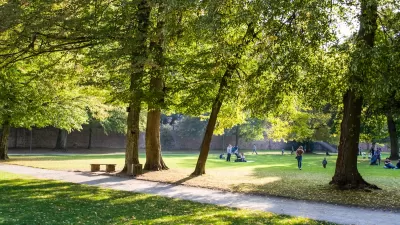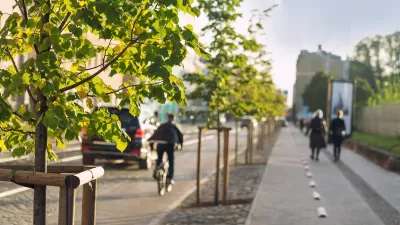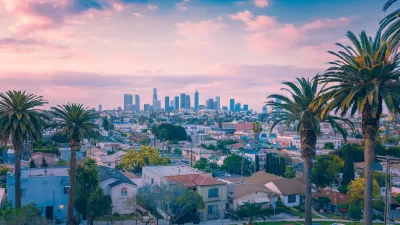The plan seeks to mitigate the effects of urban heat islands by preserving and growing the city's tree canopy.

The city of Dallas has adopted "the city's first urban forest master plan, with 14 recommendations for a unified approach to build a resilient and equitable urban forest," reports Marian Rachal in Smart Cities Dive. The plan calls for regulations that "support tree canopy preservation and growth, maximizing investment in urban forest programs and management, and creating a city storm response and recovery plan."
The Texas Trees Foundation, the non-profit that developed the plan, argues that as development in Dallas increases, the city is at higher risk for "heat island effects that affect a significant number of economically and medically vulnerable residents." A recent study on heat islands showed that "Dallas is heating up faster than every other U.S. city except for Phoenix" and could, by 2050, "have 30 to 60 additional days over 100 degrees F per year." Urban forests provide other benefits, too: "higher standardized test scores at middle schools, decreases in violent crimes, improved mental health and even shorter hospital stays for patients with views of trees," increased property values, and reduced energy costs.
The Dallas plan follows other urban forest management initiatives in cities like Los Angeles, which "in 2019 created a city forest officer position with a Southern California urban forestry expert specifically focused on managing the city's urban forest."
FULL STORY: Dallas adopts its first urban forest master plan

Planetizen Federal Action Tracker
A weekly monitor of how Trump’s orders and actions are impacting planners and planning in America.

Restaurant Patios Were a Pandemic Win — Why Were They so Hard to Keep?
Social distancing requirements and changes in travel patterns prompted cities to pilot new uses for street and sidewalk space. Then it got complicated.

Maui's Vacation Rental Debate Turns Ugly
Verbal attacks, misinformation campaigns and fistfights plague a high-stakes debate to convert thousands of vacation rentals into long-term housing.

In California Battle of Housing vs. Environment, Housing Just Won
A new state law significantly limits the power of CEQA, an environmental review law that served as a powerful tool for blocking new development.

Boulder Eliminates Parking Minimums Citywide
Officials estimate the cost of building a single underground parking space at up to $100,000.

Orange County, Florida Adopts Largest US “Sprawl Repair” Code
The ‘Orange Code’ seeks to rectify decades of sprawl-inducing, car-oriented development.
Urban Design for Planners 1: Software Tools
This six-course series explores essential urban design concepts using open source software and equips planners with the tools they need to participate fully in the urban design process.
Planning for Universal Design
Learn the tools for implementing Universal Design in planning regulations.
Heyer Gruel & Associates PA
JM Goldson LLC
Custer County Colorado
City of Camden Redevelopment Agency
City of Astoria
Transportation Research & Education Center (TREC) at Portland State University
Camden Redevelopment Agency
City of Claremont
Municipality of Princeton (NJ)





























